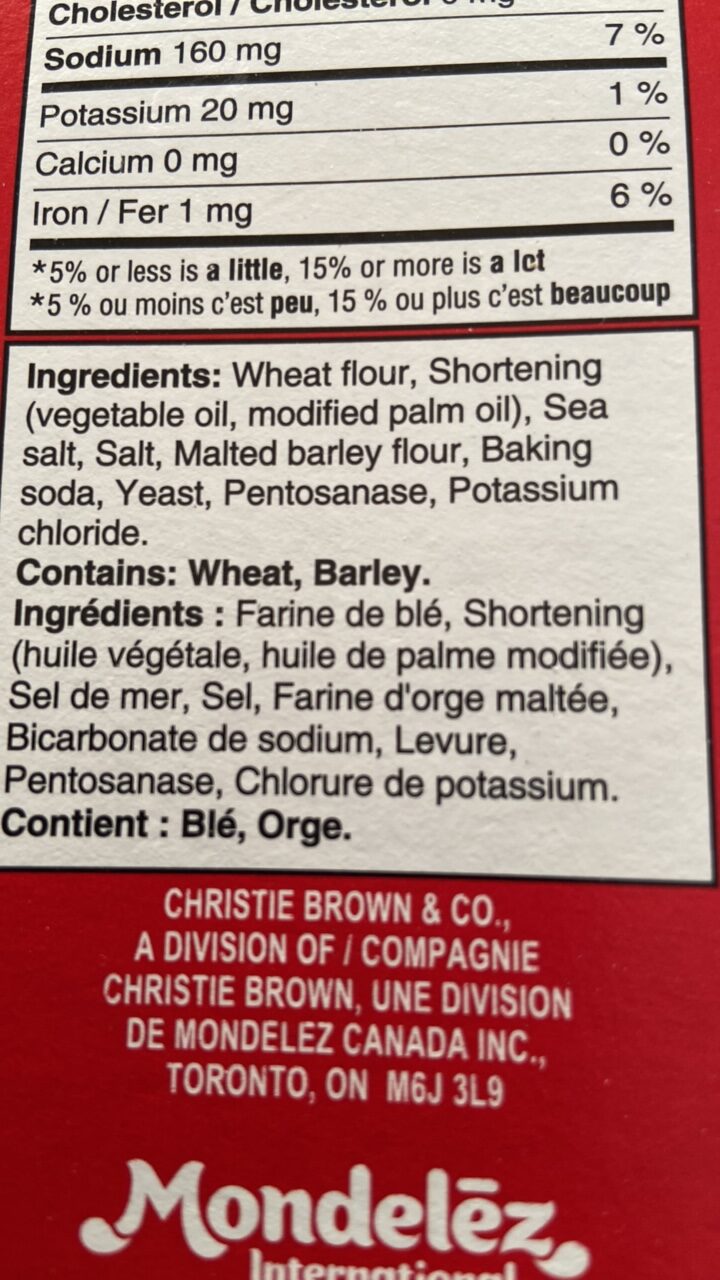
Barcode: 1069737019890
None
HALAL
📝 Reason: The analysis shows that almost all ingredients are Halal, as they derive from plant or mineral sources. However, ‘shortening’ is flagged as Doubtful (2) unless the source is definitively plant-based and certified. Islamic guidelines emphasize avoiding doubtful matters (Hadith: Sahih Bukhari 52:1), and Halal status requires clear sourcing. All Ecodes in product_info are absent, and there are no Haram animal derivatives or alcohol. No explicit Haram Ecodes (e.g., E120, E124) found in the ingredient list. See general ingredient guidance from IFANCA and halal certifying authorities.
📄 Certificates: Vegetarisch
Ingredients:
Details
Exploring the Halal Status of None
If you’re curious about the Halal status of the product None, you’re in the right place! Our comprehensive analysis reveals that None is considered Halal, with a few considerations regarding its ingredients. In Islamic dietary laws, Halal refers to what is permissible, and understanding each ingredient is crucial for consumers seeking Halal food options.
Ingredient Breakdown
Let’s delve into the ingredients of None, as listed:
- wheat flour
- shortening
- vegetable oil
- modified palm oil
- sea salt
- salt
- malted barley flour
- baking soda
- yeast
- pentosanase
- potassium chloride
- wheat
- barley
- farine de blé
- huile végétale
- huile de palme modifiée
- sel de mer
- sel
- farine d’orge maltée
- bicarbonate de sodium
- levure
- chlorure de potassium
Halal Status Evaluation
The evaluation of None’s ingredients shows that almost all components are Halal, deriving from plant or mineral sources. Here’s a detailed breakdown of each ingredient and their Halal status:
- wheat flour: Plant-derived and widely accepted as Halal if unadulterated. (Source)
- shortening: This ingredient is flagged as Doubtful unless it’s certified as vegetable-only. It could potentially derive from animal fats without proper certification. (Source)
- vegetable oil: Typically plant-based and Halal if not mixed with Haram substances. (Source)
- modified palm oil: Halal if no Haram additives are included, sourced from palm. (Source)
- sea salt: A mineral, thus Halal. (Source)
- salt: Pure mineral guaranteed Halal. (Source)
- malted barley flour: Plant-based; Halal unless contaminated. (Source)
- baking soda: Sodium bicarbonate, synthetically produced and Halal. (Source)
- yeast: Fungus microorganism confirmed Halal. (Source)
- pentosanase: Enzyme, generally from microbial or plant sources, Halal if animal-derived sources are avoided. (Source)
- potassium chloride: A mineral salt, classified as Halal. (Source)
- wheat: Plant source; Halal. (Source)
- barley: A grain that is Halal. (Source)
- farine de blé: French for wheat flour, plant-based and Halal. (Source)
- huile végétale: French for vegetable oil, generally Halal. (Source)
- huile de palme modifiée: Modified palm oil, also Halal. (Source)
- sel de mer: Sea salt in French; Halal. (Source)
- sel: Salt in French; Halal. (Source)
- farine d’orge maltée: Statement applies here as well; Halal. (Source)
- bicarbonate de sodium: French for baking soda; Halal. (Source)
- levure: French for yeast; Halal. (Source)
- chlorure de potassium: French for potassium chloride; Halal. (Source)
Final Thoughts
In conclusion, while None is generally regarded as Halal, the ingredient that raises potential concerns is shortening. If sourced from a reputable provider verifying plant-only sources, it aligns well with Islamic dietary standards. Always consult product labels for specific Halal certifications and verify with your certifying authority when in doubt. This post aims to provide clarity for those seeking Halal dietary options while enjoying the products they love.
